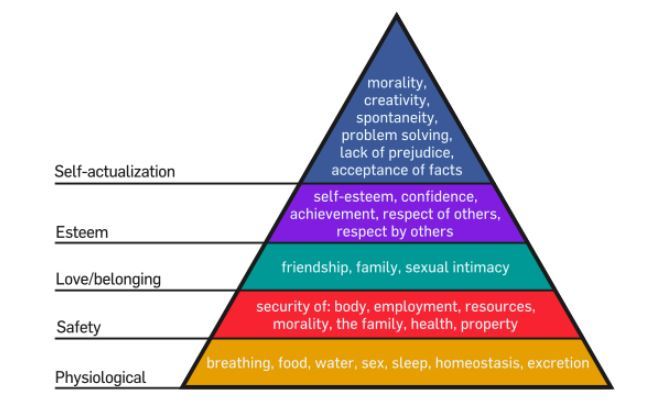They say that money can’t buy happiness…
…or can it?
A recent study showed that money can buy happiness, but only a certain amount. We can call this a baseline level of happiness.
The researchers concluded that the ideal income for individuals is $95,000 a year for life satisfaction and $60,000 to $75,000 a year for emotional well-being, with families with children needing more.
What happens after that level of income is reached?
The study went on to conclude that once that threshold is reached, further income is actually associated with reduced happiness.
What this means is that money is only a part of what makes us happy. If we’re really unhappy to our core inner being, then there are limits to how happy money can make us.
So what are the reasons why money can’t buy happiness…or at least more happiness above that baseline threshold?
First of all, we need to take a step back.
What exactly is happiness anyway?
Is it a car, a house or a big screen TV? Buying a new car feels great at first. But months and years later, it’ll just be a car. The bright, shiny, newness eventually wears off and then you’re back to where you started. Or you’ll want more.
We probably don’t need a dictionary definition of happiness, right? It’s a feeling. If someone asks you if you’re happy, you usually can give them an answer right away. We often use “happiness” to describe a range of positive emotions, including joy, pride, contentment, and gratitude.
To me, happiness is contentment. Content with what you do have in your life. Not focused on the things that you don’t have.
True, authentic, genuine happiness is about relationships, self-development and experiences. Look at the proven ways to increase happiness. How many of these involve buying material things?
None.
So let’s take a deeper look at the seven reasons why money can’t buy happiness.
1. The Hedonic Treadmill.

The hedonic treadmill is the observed tendency of humans to quickly return to a relatively stable level of happiness despite major positive or negative events or life changes. According to this theory, as a person makes more money, expectations and desires rise in tandem, which results in no permanent gain in happiness.
Think about the last time you made a major purchase. What happened when you finally got that new car? How long did your happiness last? Not very long, right?
You may think that you will really be happy when you buy that shiny new car, but then your neighbor got a nicer one and now you want that one. This is the power of adaptation. The new wears off quickly and we move on to wanting something else which we think is going to make us happier.
A classic study on this topic is titled Lottery Winners and Accident Victims: Is Happiness Relative?
The researchers wanted to see how people adapted to happiness. What they found was fascinating.
They interviewed three groups of people: lottery winners, paralyzed accident victims and a control group.
Initially after winning a pile of money, the lottery winners had an increase in happiness. Makes perfect sense. And immediately after their accident, the victims were angry. This also makes sense.
Here’s where it gets interesting: within ONLY two months, both groups had returned back to their average level of happiness.
That’s the hedonic treadmill – we all return to our baseline level of happiness, even when something awesome or tragic happens in our lives. The 6 other tips below will give you even more insight on why money can’t buy happiness.
2. True Happiness Comes From The Inside.
Maslow’s Hierarchy of Human Needs represents our human needs, with the ones at the bottom being most necessary, then building upon those. At the base is physiological (food, water, air, sleep), and at the top is self-actualization- realizing your full potential as a person.

Money can help you purchase the physiological and the safety levels of the hierarchy. But as you move up the layers of the hierarchy, these are our human needs that money simply can’t buy: love/belonging, self-esteem and self-actualization. If you do try to buy them, they’re hollow and meaningless.
The bottom of the hierarchy supplies our external needs, which money can buy, then moves up to the intrinsic needs of the heart, mind and soul. As you go up the hierarchy, the less money will help you.
3. Money Can’t Buy Authentic Relationships.
At the end of the day, even wealthy people crave authentic human connections. Time and time again, we see examples of the rich and famous being miserable. They are not happy in their love lives, family lives and oftentimes, in their careers.
Think about your closest friends. The ones you turn to when you’re going through a challenging time. You might be sad, anxious or depressed. A friend can make you smile or laugh. They can turn your mood from gloomy to sunny. Money doesn’t buy that.
Your relationship with your spouse also has an impact on your happiness. We probably all have friends who are in joyous, thriving marriages even with lesser money in their bank accounts, while other marriages are filled with arguments, and a lack of love and trust despite millions in the bank.
Having a lot of money doesn’t mean you’ll have a lot of authentic, fulfilling relationships in your life.
4. Be Grateful For What You Do Have
Your attitude towards money counts. It’s important to develop a healthy relationship with your money. If you stick to the belief that money directly determines happiness, you can get stuck in a cycle of constantly wanting to accumulate more. More money, more stuff, but never feeling like it’s enough. That goes back to the hedonic treadmill that we talked about in tip #1.
So how do you develop the right attitude towards money? First, practice gratitude. The benefits of gratitude are well documented. A five-minute daily gratitude practice can increase your long-term happiness. The actual gratitude produced during those five minutes is small, but the emotions of gratitude felt during those five-minutes are enough to trigger a grateful mood. Focus on what you do have in life, rather than complaining about what you don’t have. When you focus on things like your relationships, health and overall life, you may realize you’re life is already “rich” enough.
Second, don’t make comparisons to others. If you see someone else’s fancy car, it’s easy to want the same thing. Don’t. That will only put you in the mindset that you don’t have enough, or you aren’t good enough. It can conjure up feelings of depression and jealousy. Back to our gratitude tip, this is a good time to focus on what you already have. Take some time to write handwritten notes and tell other people how awesome they are. Or give back to your local community.
And finally, as you’ll see on our next tip, spend your time and energy on experiences instead of stuff. Focus on connecting with your community, your friends and on nature. Doing so will create memories that last a lifetime.
5. You’re Living In A Material World.

Many of us want to make more money so we can buy more material things. Cars, bigger homes, stuff for our bigger homes, the latest iPhone or that Gucci handbag. And while these things may make us happier for a few days, as we talked about in tip #1, this only leads to us wanting more.
What’s important here is how we spend our money. Science now shows that it’s not about how much money you have, but how you spend it. In fact, studies show a strong correlation between altruism and happiness. Donating can help you find the meaning in life.
But you don’t have to have large amounts of cash to make a difference. You can just buy a cup of coffee for the person in line behind you. Or sponsor a friend that is raising money for a charity. Even buying a $10 gift card and surprising someone at work will make a difference in how you feel.
Spending money on experiences has been shown to increase happiness as well. While buying more stuff will just add to the clutter in your life, and can get lost or broken, experiences create memories and connections that can last for a lifetime. You can travel, learn a new musical instrument, or even take a cooking class.
6. It’s The Little Things In Life That Matter
What brings you joy? What brings a smile to your face? It’s different for each of us. It may be going for a hike in the woods. It might be the laugh of a baby or a hug or watching a butterfly. It could be a friendly hello from the barista or sleeping in.
Money doesn’t have anything to do with these. However these are the little things in life that matter. The things that bring us happiness. Happiness is found in the smallest things. The random act of kindness or small gestures. Non material things. They say kindness is free. Sprinkle that stuff everywhere. So go ahead – flash someone a smile, or compliment someone on their shoes – and see how you feel.
7. Money Can’t Buy Time
It’s been said that time is our most precious commodity. However, the #1 excuse why people aren’t doing more things that they love (hiking, spending time with friends, etc) or reaching a goal, such as a fitness goal, is a lack of time. So what exactly is going on? Well sometimes we get too caught up in either working hard to save a buck or working hard to earn a buck to realize what really matters – our time. We’re often focused more on getting more money than buying more time.
Research suggests that people with more money do not spend their time in more enjoyable ways on a day-to-day basis. People with more money tend to spend their time on more stressful activities, such as working and commuting, instead of enjoyable activities.
Those who are so focused with saving every penny don’t take the time to enjoy life. Rather than getting caught up on making or saving money, focus on making more time for yourself to enjoy doing activities and seeing people who make you happy.
In conclusion, once you have your basic needs met – food, water, shelter, clothing and the feeling of safety, then money won’t buy you happiness. It won’t help you increase your baseline happiness.
It’s up to you to build meaningful relationships, live in an attitude of gratitude, enjoy the little things in life, and start spending your money on experiences and other people rather than material things. These are the things that will help you live a more joyous life.
Finally, one proven way to improve your happiness and life satisfaction is to focus on goals that truly matter. To get started, check out this FREE printable worksheet and a step-by-step process that will help you set effective SMART goals.

Scott Colby is an adventure lover who has always created businesses around his passions. Although he has spent over a decade in the fitness industry, helping people create transformations, it was a trip to Guatemala that inspired him to create his latest brand – Say It With Gratitude.


